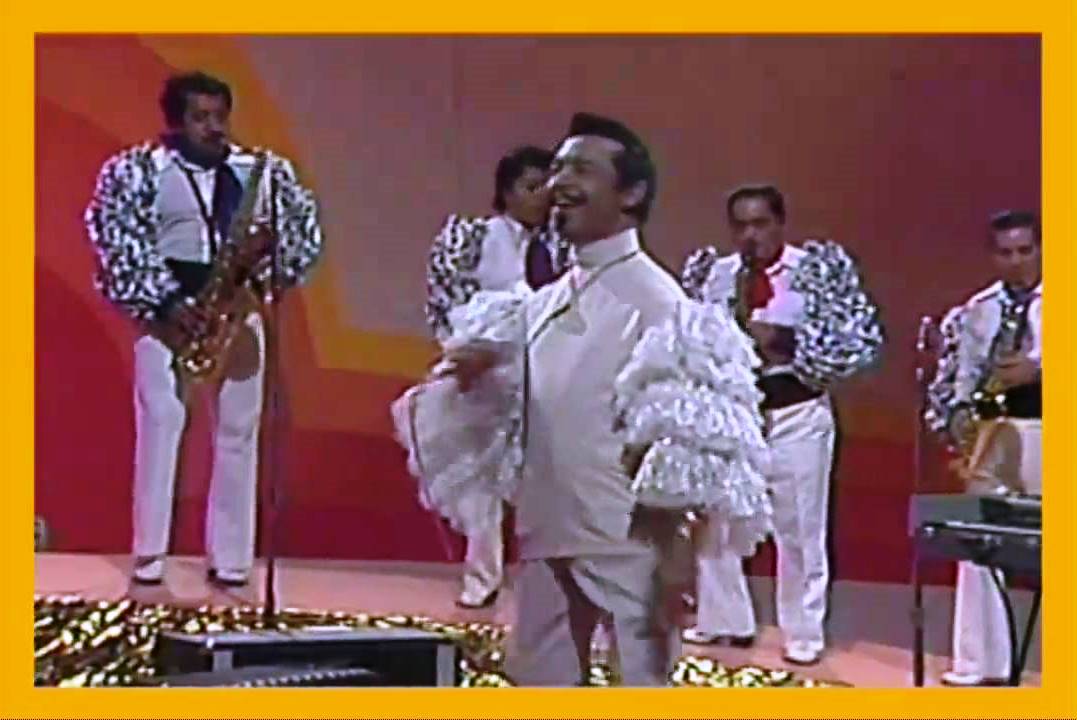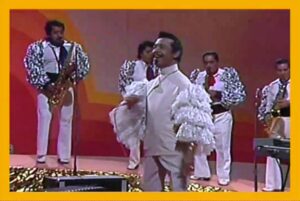Pérez Prado: tributes and questions.

 Dámaso Pérez Prado was heard again at the Sauto Theater (MN) during the celebration of the III Mesoamerican and Caribbean Congress of Community Live Cultures, through the San Lorenzo Youth Wind Band, from Oaxaca, Mexico, conducted by maestro Benjamín Bautista.
Dámaso Pérez Prado was heard again at the Sauto Theater (MN) during the celebration of the III Mesoamerican and Caribbean Congress of Community Live Cultures, through the San Lorenzo Youth Wind Band, from Oaxaca, Mexico, conducted by maestro Benjamín Bautista.
The concert included pieces by Mexican composers, a tribute to the composer and arranger born and musically trained in Matanzas, who became famous in Mexico and became The Mambo King, a rhythm that invaded the world and still shows its power to make everyone dance, no matter where they come from.
The medley, in which also participated with the Mexican band the Matanzas quintet Atenas Brass Ensemble, currently conducted by Dairon Jimenez, included a fragment of that brilliant symphonic piece by Perez Prado, Suite de las Americas.
Listening to Pérez Prado is always exciting and contagious. Personally it moves me because of the relationship that since 2015 linked me to his biography and music, when I prepared together with Yanira Marimón and at the proposal of Ediciones Matanzas, a book that compiled essays by writers and scholars of his musical work about him and the mambo, but whose most significant contribution was to define several historical aspects, as the address of his natal house, his real name (Dámaso Pablo de Jesús) and the authentic date of birth, which is not in 1916, as it is still published, but on December 11, 1917, according to baptismal certificate found in the Cathedral of Matanzas and certification of birth in the Civil Registry of Matanzas, both published in the book Mambo, ¡qué rico é,é! Ediciones Matanzas, and in the biography that Sergio Santana writes about him.
Both books were presented in Matanzas, during the celebration of the Pérez Prado Centennial Colloquium, organized by the Casa de la Memoria Escénica and other institutions, which was attended by several scholars of his music from Mexico and Cuba.
During that event also premiered the binational show Yo soy el Rey del mambo, a text published by Ediciones Matanzas, staged by the Independent Company Conjuro Teatro, under the direction of Dana Stella Aguilar, Beca Efiteatro 2017, which featured live music by Atenas Brass Ensemble and had 30 performances on stages in Cuba and Mexico.
In many ways, Perez Prado returned to live with his ghosts on the scene, traumas, chaos, triumphs, in which the unveiling of his birth date was one of his contributions. From that moment on and with legal documents the birth date was clarified.
It is important to point out that in his native house, because he lived in several in the city of Yumurina, there were three tarjas that remember him: one from the people of Cuba, another from his Mexican friends and a last one from the Society of Composers of Mexico, brought from that nation by his personal friend Iván Restrepo, together with the researcher and current director of the Mexican Phonotheque, Pável Granados.
It turns out that after several years of this discovery, I check and see that in some publications, such as Wikipedia, the date of December 11th, 1916, is still in some publications. But it is 1917. Luckily, Ecured, the Cuban portal and thanks to musicologist Radamés Giró, clarifies it for a long time, even before our publication of the official documents.
Listening to Pérez Prado also leads me to other questions or dramatic facts of his life, always so full of personal and professional conflicts, which my Colombian friend Sergio Santana collects with rigor in the first biography about the controversial musician, which I recommend to read, for being thorough, intelligent, enlightening.
I believe that if another one is to be written, it should be based on this contribution of the Colombian researcher, with an intense curriculum and several books dedicated to music in general, but also to Cuban music, such as the one dedicated to Benny Moré.
Pérez Prado’s life is full of these kinds of dramatic areas, such as the controversy over the paternity of the mambo and what has happened with his tomb in the Panteón de Dolores.
During my stay in Mexico for the performances of Yo soy el Rey del mambo, between 2017-2018, I visited spaces, I listened to pieces that I did not know, I met people linked to Pérez Prado, to whom I feel linked for the reasons I explain before. Since that date, it was also said that the musician was not in the place where he was buried.
From those uncertainties, I began to write a series that I left in one of its chapters, and a novel, which has remained unfinished. Recently the teacher Sergio Santana sent me a photo of the cemetery and asked me if I knew anything about the fate of Pérez Prado.
Some time later I was asked the same question by the matancero musician Ethiel Failde, director of the Miguel Faílde Orchestra, also concerned about the situation of the tomb, abandoned and full of cleaning utensils of the employees.
For neither of them I had an answer. Mine and Yanira Marimón’s are related to his birth and stay in Matanzas.
The truth is that the speculation was becoming a reality and at the same time, as in the novel and the series of my creation, a mystery. Where is Perez Prado?
I believe that since 2017 several ensembles have highlighted him in their repertoire, especially Atenas Brass Ensemble, founded by Rodolfo Horta, who took on almost all his work for his concerts -recorded in 2018 by the Fonoteca de México-, and for the staging of Yo soy el Rey del mambo, which was conceived as a score, complex and theatrical, by the musical director of Conjuro Teatro’s staging, the Mexican Emiliano González de León. All these events made him live, made him feel part of our cultural heritage.
That is why it was so moving to listen to Pérez Prado again at El Sauto, in the performance of the San Lorenzo Youth Breath Band, made up by children and young people, which, according to its director Benjamín Bautista, keeps him alive in its repertoire, as it happens in the spirit of the Mexican people, something that I have been able to confirm in several occasions.
The tragic thing is to know where Pérez Prado is and that his date of birth, although clarified, is still erroneous in several places. An event is part of his biography, full of genius, but also of uncertainties. Pérez Prado continues to be, as I wrote for Yo soy el Rey del mambo, a dramatic, seductive and unattractable character. And to whom we still owe a lot.
Written by Ulises Rodríguez Febles.




